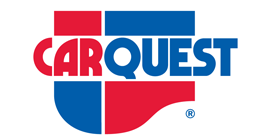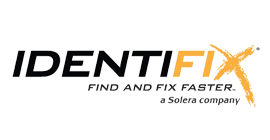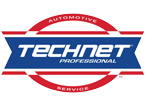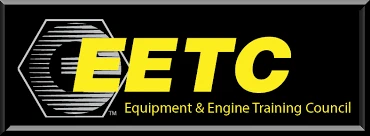
Archive for March 2022The Steve & Stacy's Servicenter Basic Guide To Synthetic OilPosted March 27, 2022 9:08 AMSynthetic motor oil has been around for a long time, and more and more new vehicles are leaving factories with synthetic in their engines. But a lot of drivers don't really know much about it. Steve & Stacy's Servicenter
130 Virginia Street W
Charleston, WV 25302
(304) 343-4611
Slipping into Fall (Driving with ABS Brakes)Posted March 20, 2022 8:45 AMAs the weather changes over from hot to colder, drivers will have to deal with more slippery streets. And it's important to know how to drive with the brakes you have on your vehicle. In the 1970s, anti-lock braking systems (ABS) started to be installed on vehicles and they've been a game changer for drivers. Most modern vehicles have ABS and it's important to know how to drive with them. In older vehicles without ABS, the driver applies the brakes by pushing down the pedal. That, in turn, sends braking pressure to all four wheels at once. But all four tires don't have the same traction because the road surface they're each on isn't exactly the same. ABS allows sensors to determine when particular wheels are slowing down more quickly. The ABS then reduces braking pressure to the wheels that are about to lock up. That way the wheel turns and the tires keep some grip. (You have to have grip to stop.) It's kind of what drivers try to achieve when they pump the older-style brakes without ABS. Another engineered feature of ABS is that it makes sure your front wheels will continue to rotate and maintain some traction. That's important because the front wheels are used to steer, and being able to steer gives a driver more control in a quickly-changing situation. So ABS is all about stopping as fast as the road surface will allow but at the same time enabling the driver to maintain control. ABS is designed for the driver to put steady pressure on the brake pedal and let the vehicle’s computerized system handle the braking. Pumping the pedal in a vehicle with ABS can defeat what the system is trying to do to help you maintain control. Because stopping techniques in a vehicle with ABS are different than those without, it’s important to know which brakes you have so you can operate them accordingly. If you have any doubt, consult your service advisor. ABS involves sophisticated technology and must be maintained in order for it to work properly. Your service advisor can recommend a maintenance schedule for you to follow so your ABS is always on the ready to help you stop when you need to. Steve & Stacy's Servicenter Stop It! You Need Good BrakesPosted March 13, 2022 8:29 AMGood brakes are obviously very important. If you've ever had your brakes go out while you're driving around the Charleston area, you'll know how terrifying it can be. Today we'll focus on how to tell when you have a brake problem and how to make good repair choices. Steve & Stacy's Servicenter PCV Valve: What Is It?Posted March 6, 2022 10:38 AMMost Charleston drivers know something about preventive maintenance on a vehicle. We know we should routinely replace the oil and wiper blades and other fluids. But have you heard of a PCV valve ? This little car part needs to be replaced regularly or it can cause some serious problems in your vehicle engine. Steve & Stacy's Servicenter | ||
SearchArchiveApril 2016 (16)May 2016 (5) June 2016 (4) July 2016 (5) August 2016 (4) September 2016 (4) October 2016 (5) November 2016 (4) December 2016 (4) January 2017 (5) February 2017 (4) March 2017 (4) April 2017 (3) May 2017 (4) June 2017 (5) July 2017 (5) August 2017 (3) September 2017 (3) October 2017 (5) November 2017 (4) December 2017 (3) January 2018 (5) February 2018 (4) March 2018 (4) April 2018 (5) May 2018 (4) June 2018 (4) July 2018 (5) August 2018 (4) September 2018 (5) October 2018 (4) November 2018 (4) December 2018 (5) January 2019 (5) February 2019 (4) March 2019 (4) April 2019 (4) May 2019 (4) June 2019 (5) July 2019 (4) August 2019 (4) September 2019 (5) October 2019 (4) November 2019 (4) December 2019 (5) January 2020 (5) February 2020 (4) March 2020 (5) April 2020 (4) May 2020 (5) June 2020 (4) July 2020 (4) August 2020 (5) September 2020 (4) October 2020 (4) November 2020 (5) December 2020 (4) January 2021 (6) February 2021 (4) March 2021 (4) April 2021 (4) May 2021 (5) June 2021 (4) July 2021 (4) August 2021 (5) September 2021 (4) October 2021 (5) November 2021 (4) December 2021 (4) January 2022 (6) February 2022 (4) March 2022 (4) April 2022 (4) May 2022 (5) June 2022 (4) July 2022 (5) August 2022 (4) September 2022 (4) October 2022 (5) November 2022 (4) December 2022 (4) January 2023 (5) February 2023 (4) March 2023 (4) April 2023 (5) May 2023 (4) June 2023 (4) July 2023 (5) August 2023 (4) September 2023 (4) October 2023 (5) November 2023 (4) December 2023 (5) January 2024 (5) February 2024 (4) March 2024 (5) April 2024 (3) | CategoriesDifferential Service (3)Parts (5)Maintenance (45)Automotive News (6)Battery (11)Service Standards (10)Tires and Wheels (29)Service Intervals (7)Cooling System (13)Fuel System (40)Timing Belt (5)Fluids (13)Exhaust (9)Dashboard (3)Headlamps (3)Diagnostics (3)Trip Inspection (2)Steering (9)Cabin Air Filter (5)Brakes (16)Inspection (6)Monitoring System (3)Alignment (13)Check Engine Light (4)Transmission (9)Keys to a long lasting vehicle (4)Shocks & Struts (6)Drive Train (8)Air Conditioning (13)Serpentine Belt (5)Fuel Economy (6)Emergency Items (1)Older Vehicles (3)Winter Prep (2)What Customers Should Know (55)Diesel Maintenance (1)Auto Safety (5)Safety (5)Alternator (5)Suspension (3)Oil Change (7)Fuel Saving Tip: Slow Down (2)Engine Air Filter (2)Windshield Wipers (6)Tires (8)Winter Tires (1)Water Pump (1)Wheel Bearings (1)Transfer Case Service (1)Spark Plugs (1)TPMS (1)Warranty (1)Brake Service (1)Tire Rotation and Balancing (1) | |
What our clients are saying about us
We have established longterm and stable partnerships with various clients thanks to our excellence in solving their automotive needs!
They always do quality work. I trust them. Always courteous.

always very friendly




















